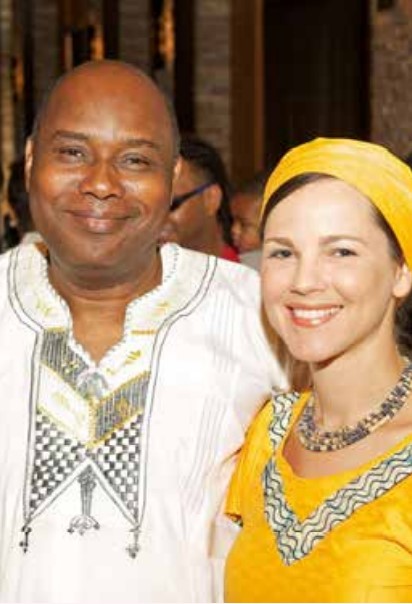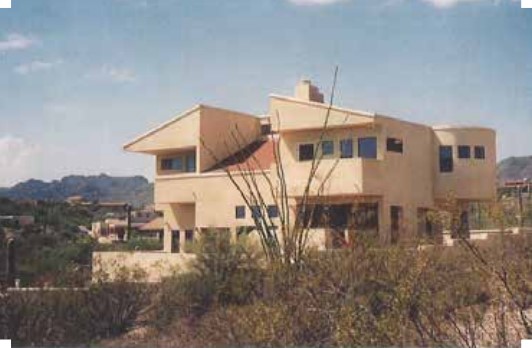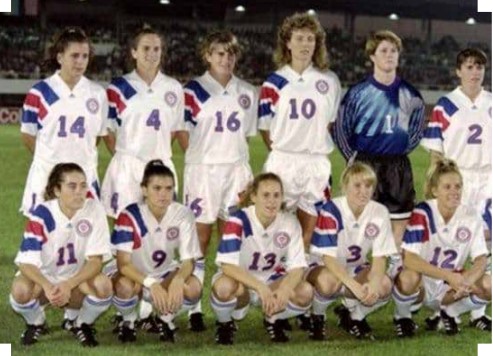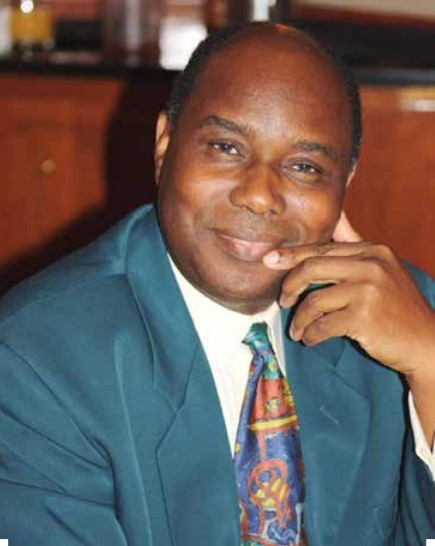Nigeria is in a State of Wasted Brilliance of Hard Working people

Our New Year kick off interview guest for Face to Face is Mr. Kwevi Quaye. He is a known person for his professional prowess. He is the President of Diaspora Showcase, a holding company with global interests in architecture, entertainment, media, sports, fashion, travel, real estate development and investment. His diaspora’s projects are developed through the establishment of international joint ventures that offer the opportunity to penetrate new markets worldwide and provide the company with a unique expertise in alliance management.
He was a regular at The White House briefings on Economic and Business Development for Africa, during the Clinton administration, Mr. Quaye was appointed by the United Nations-Food and Agriculture Organization (FAO) to co-ordinate the 1996 “ Food For All” campaign in commemoration of “The World Food Day”. He was also responsible for the development of Essence Magazine’s brand extension “Travel As Entertainment”, which culminated in the establishment of the “Essence Travel Club” and “Essence Music Festival Cruise” properties that later became part of the Time-Warner acquisition of Essence Communications.
In 2004, Mr. Quaye created the critically acclaimed and award winning Diaspora Showcase, an annual event that features the music, food, dance and fashion of Africa. The showcase format also provides visibility to charitable and humanitarian organizations that have made significant contributions to Africa.
Mr. Quaye is architecture, a graduate from the University of Arizona, an art dealer that managed the career of his brother, Mr. Tayo Quaye, whose works are in several notable collections globally, including the Smithsonian Museum in Washington D.C., and Victoria Albert Museum, London, England. He served as a board member of the Ethiopian Children’s Fund, the Ghana Education Project, Tucson Jazz Society and member of Technoserve, an organization that helps entrepreneurs in poor areas of the developing world to build businesses that create income, opportunity and economic growth for their families, their communities and their countries.

Enjoy this special interview; even though it took months to get him to grant us this exclusive chat, it is ready for your reading pleasure.
TV: Introduce yourself to our worldwide readers please and what you do professionally?
Kwevi Quaye, an Architect and Producer. Though, this is a limiting introduction, because of the scope of businesses that I have developed in the arts, media, entertainment, sports and travel industries.
TV: Where do you come from in Africa? I know you live in the United States of America, and how long have you lived in that country?
Kwevi Quaye: I am a descendant of immigrants, who migrated to Lagos, when it was a British Protectorate. My family background is over 2,000 years of ancient history. But I am an American. Some of my formative years was in Nigeria, where I was born. I also obtained my early education at the prestigious High School, St. Gregory’s College.
TV: How is life in the United States of America compared to Nigeria?
Kwevi Quaye: America has progressed more into a racially and economically divided country, during the Trump administration. And this has nothing to do with just race or ethnicity. It is more of a shift in the social order, between the various competing ideological and political groups. The racist conservatives, the liberals or moderate conservatives, and the progressives, all have a different vision for America. We have seen this played out consistently, during the past four years, even with the contested U.S. election results. But America has a very strong democracy with solid institutions, that has been tried and tested for more than two centuries. Compared to America, Nigeria is still grappling with nation building, with a new Constitution that was written in 1999. It does not have strong institutions, which monitors bad governance or the adherence to the rule of law. Corruption is endemic. Politics is for personal gain, rather than service to the nation. Until this weakness in the strands of Nigeria’s development is resolved, I do not see how the nation could improve. What is bothersome about the retrogressive state of Nigeria is the wasted brilliance of a very hard-working people.
TV: You are trained as an Architect. Do you still practice? And What type of work do you do?

Kwevi Quaye: There are three projects now in the pipeline that I am developing with my sister, Ayeleh, one of the project is an event center, that will be dedicated to my aunt, Tutu. My architectural projects are varied from high priced residential buildings, to commercial restaurants and apartment complexes. What I enjoy designing the most are the private residences, because they are a lot more challenging aesthetically and functionally. One of my favourite, is the “Greer House”, which my client gave me complete creative freedom. The building, is a study in procession, and an exercise in form and spatial concepts. The interior of the house has five levels. However, from any vantage point outside of the building, the house looks like a two-storey building. The space and form compositions were achieved by multi-layering.
TV: On your Biographical Profile, you are also a soccer coach. Is that a hobby or something you do?

Kwevi Quaye: It started as a hobby. I was asked to coach a local Women’s team, La Fuerza in my city. A year later, I started my own Women’s team called “Sistema”, that became “Sistema Soccer Club”. During the best years of our Club, Sistema was a 3-time Arizona State Champions, and we won just about every tournament on the West Coast of America. From “The Chancellor’s Cup” in Riverside, International Games in El Paso, O”Rourke Cup in Northridge, Ladies Invitational in Torrance to the Bufallo Soldier tournament at Fort Huachuca. However, at our 1989 Sistema Soccer Classics in Tucson, Arizona, which our club hosted 52 teams from 10 countries and 25 U.S. cities, we ended up in third place. But our sister team, “California Tremors”, won that tournament. Dynamo Kyiv from the former Soviet Union took second place, and Sistema came third. Most of our players played for the top universities and colleges in the United States, and five played on the U.S. National team. Carin Jennings, Julie Foudy, Amy Allman, Joy Biefeld, and Brandy Chastain were amongst the best players in the world, and it was quite a delight to be part of their development. In 1991, I was honoured when the U.S. Soccer Federation and the University of Santa Barbara appointed me to produce the final exhibition games for the U.S. Women’s National team. This was in preparation for the first Women’s World Cup in China. Team USA won that World Cup. Carin Jennings won the Golden Ball and Most Valuable Player (MVP). After the World Cup, my good friend, Coach Jerry Zanelli of “Sacramento Storms” wanted me to join him to start a Women’s Soccer Professional League, but 8 of my players had signed with the company, Asahi, to play in Japan.
TV: You love Entertainment and eventually started a company to cover the industry. Tell us more about this venture?
Kwevi Quaye: My partner in Sistema Soccer Club, Clarence O. Smith, who was also the Co-Founder of ESSENCE magazine, used to tell me that, “Africa must be synonymous with excellence”, in order for Blacks in the Diaspora to be respected. Diaspora Showcase Africa was a result of making Africa synonymous with excellence.
TV: What is Diaspora Showcase?
Kwevi Quaye: Diaspora Showcase is a media and entertainment company that was founded in 2004. It produces several entertainment events, including its flagship, “Diaspora Showcase Africa”, which presents the Fashion, Music, Dance, Culinary Arts and Entertainment of Africa, in a unique format. Starting with “African Fashion Drama Trilogy”, “The Princess and The Porcupine” (2004), “The Wedding” (2005) and “African Renaissance” (2006), Diaspora showcase has featured more than 20 thematic shows. The Diaspora Showcase brand also produce, “Africa Night Dance Fusion”, and the “Diaspora Showcase Program Magazine”. Our underwriters include many global brands, such as Mercedes, Lexus, MAC Cosmetics, Southwest Airlines, JP Morgan Chase, P.F. Chang’s China Bistro and Toyota, because they saw the uniqueness of our show and the level of excellence.

TV: Is there any form of collaboration with you and other Diaspora organisations in America?
Kwevi Quaye: The best collaborations I had, was with ESSENCE magazine for 20 years with developing the brand beyond the magazine. Some of the brand extension included the ESSENCE Travel Club, which we integrated into the ESSENCE awards television show, ESSENCE Music Festival and Cruise and Jazz at sea. Today, more than 300,000 people, now attend the music festival annually in New Orleans. And several millions watch the annual ESSENCE awards on television.
TV: What have been your challenges living and doing business in America?
Kwevi Quaye: Not everything has been completely rosy, but overall, I have had a great ride. Collaborating with ESSENCE and partnering with Clarence O. Smith to develop several top industry companies was a marvelous experience. Being invited to State Ceremonies at The White House, when African Heads of State visit, during the Clinton Administration or attending White House Briefings on foreign policy that pertains to Africa, were the highlights of my career.
TV: What do you plan to do in the next few years, or where do you expect to see yourself?
Kwevi Quaye: As a kid, my favourite place was the Whitney M. Young American Library near my house in Lagos. I was always there, during my holidays to read magazine and checkout books. I hope I can build and fund several libraries in Africa.
TV: You have received several awards for your work. Are there any particular ones that stood out for you and why?
Kwevi Quaye: I will have to say The Vanguard Awards. I was honoured for all my community work and the charitable
organisations, that I have been part of for so many years. But The ADDY Awards for Design and Advertising Excellence would be a close tie too.
TV: Lastly, what would be your advice to our readers?
Kwevi Quaye: My father used to tell me “You are only as rich, as the people around you. If everyone around you is poor, then, you are poor. This is why it is important to build up your community”.





